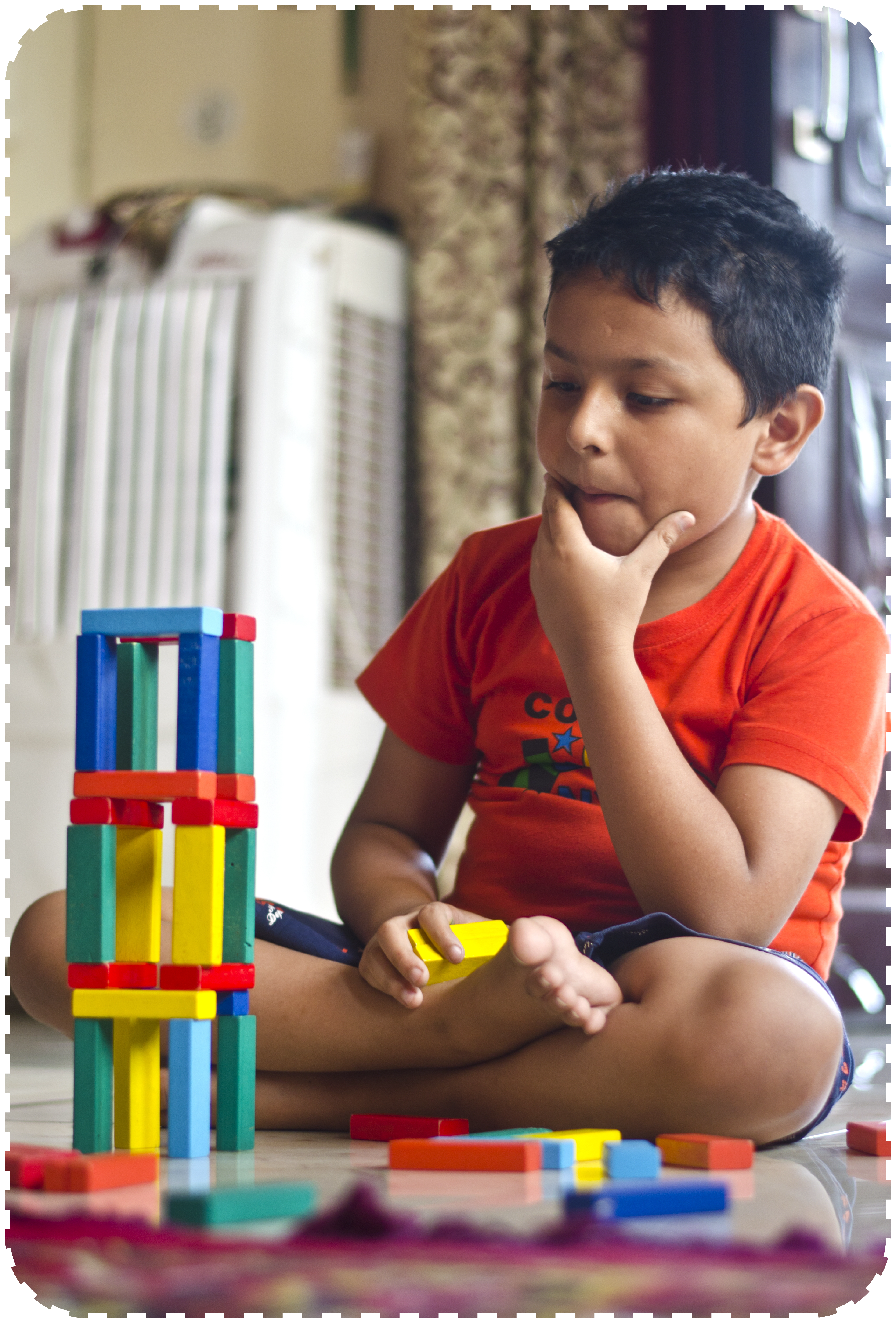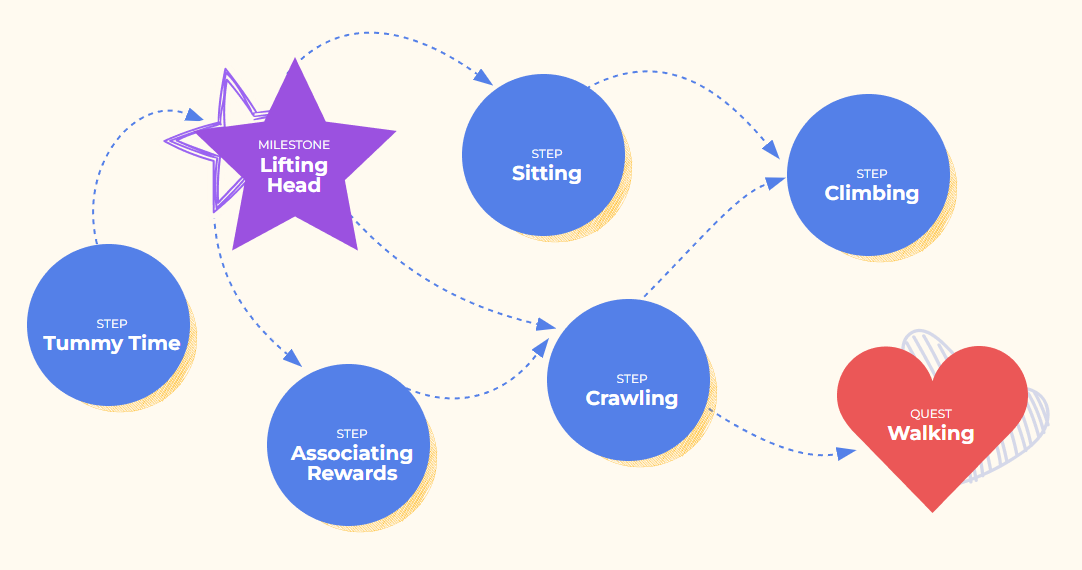Getting Started with ABA Services
Everything you need to know to begin your child's developmental journey. Use this guide to navigate the onboarding process, prepare for your first meeting, and understand what to expect in the weeks ahead.


Step 1: Help Us Get to Know Your Child
Start our journey together on the same page. This 20-minute form is required for all new families—completing it today gives us a significant head start. By sharing your child’s strengths and needs now, you ensure our team is ready to focus entirely on your family’s priorities from the moment we meet.
Onboarding with Parents
Great outcomes are built on total alignment. While your intake form provides our clinical base, your personal insights help us understand where to focus first. We invite you to consider the skills or behaviors you value most for your family right now. In our first meeting, we’ll work as partners to align those priorities with our proven methodology, ensuring every "quest" we embark on is one we’ve chosen together.
The Initial Meeting
Are we the right fit for your family?
You’ll speak directly with a Unity founder to get your questions answered and determine if our team is the right partner for your journey. To make this easy, we provided some FAQs below to help guide the conversation and ensure you get the clarity you need.
Clarity & Expectations
Ensuring there are never any surprises.
We’ll review Unity’s Service Agreements together to confirm expectations and schedule your child's assessments. Transparency is our priority—we want you to feel fully informed and confident in every detail before we move forward.
Clinical Intake & Assessment
Meeting the team behind your child’s development.
This is where you meet the clinical experts dedicated to your child’s growth. Depending on your circumstances, we’ll hold one or two meetings with you and your child to conduct the appropriate assessments and begin mapping out their personalized path.
Insurance Authorization
Simplifying the logistics.
We take the lead on working with your insurance provider to authorize all services. While we handle the paperwork, we’ll stay in close contact to align on a scheduled start date that works best for your family.

Begin Services
Official start of services.
With authorization secured and our plan in place, we officially begin your child's services. We hit the ground running, turning our shared vision into meaningful progress.

Understanding Your Child's Unique Needs
Parenting a child with special needs can be both challenging and rewarding.
Understanding your child's unique needs is crucial for providing the best care. Each child is different, whether they have autism, ADHD, Down syndrome, or another condition. Recognizing their specific strengths and areas for support is essential.
Our Framework
We will teach you our methodology throughout our journey together. To start, please familiarize yourself with the concept of a "step", "milestone", and "quest" by hovering over the examples below.

Lifting Head
Milestones represent major life accomplishments. Milestones act like progress checks as they help us identify whether or not we are learning. Each milestone occurs organically, so no forcing these. The child shows us when they are ready. We will continue to set the environment up, and teach the right lessons to ensure many milestones are achieved.
Tummy Time
Steps represent the individual units of progress. They should be difficult enough that a child will try, but not so difficult that they gives up. Each step is one increment forward from the last – meaning that the lessons of steps compound. Once enough steps have been complete, the child's understanding will have grown significantly. After a step is initially completed, it often moves to the Daily Quest Log where it stays until mastery occurs.
Associating Rewards
Steps represent the individual units of progress. They should be difficult enough that a child will try, but not so difficult that they gives up. Each step is one increment forward from the last – meaning that the lessons of steps compound. Once enough steps have been complete, the child's understanding will have grown significantly. After a step is initially completed, it often moves to the Daily Quest Log where it stays until mastery occurs.
Sitting
Steps represent the individual units of progress. They should be difficult enough that a child will try, but not so difficult that they gives up. Each step is one increment forward from the last – meaning that the lessons of steps compound. Once enough steps have been complete, the child's understanding will have grown significantly. After a step is initially completed, it often moves to the Daily Quest Log where it stays until mastery occurs.
Crawling
Steps represent the individual units of progress. They should be difficult enough that a child will try, but not so difficult that they gives up. Each step is one increment forward from the last – meaning that the lessons of steps compound. Once enough steps have been complete, the child's understanding will have grown significantly. After a step is initially completed, it often moves to the Daily Quest Log where it stays until mastery occurs.
Climbing
Steps represent the individual units of progress. They should be difficult enough that a child will try, but not so difficult that they gives up. Each step is one increment forward from the last – meaning that the lessons of steps compound. Once enough steps have been complete, the child's understanding will have grown significantly. After a step is initially completed, it often moves to the Daily Quest Log where it stays until mastery occurs.
Walking
Quests are journeys to achieve meaningful accomplishments where a critical lesson is learned. The name quest helps us gamify the journey excite progress. Quests are "the big goals" which are made up of a series of steps which the child must complete in order to achieve an outcome. Quests can take anywhere from a day to many days to complete, but should never take more than one month of consistent effort.
Why Choose Us?
A Methodology Built for Beyond
Our Unity Methodology blends evidence-based developmental science with the best philosophies from around the world — designed to go beyond traditional approaches and unlock your child's full potential.
Family at the Center
We're a family-led company that works alongside parents, not just children, because lasting progress happens when everyone is aligned — at home, at school, and in therapy.
Personalized from Day One
No two children are the same. Every program we create is tailored to your child's unique strengths, challenges, and goals — and evolves as they grow.
We Walk the Walk
We use our methodology with our own kids. That's how confident we are in what we do — and how committed we are to doing it right.
FAQ
Frequently Asked Questions about Unity Behavioral Services.
How should I prepare for our first meeting?
Start with a clear focus. Think about what you want to achieve for your child today—whether it's reducing specific behaviors or building new skills. Be specific – instead of saying "communication," try "I want them to be able to ask for a snack." Sometimes it's: "I want these behaviors to disappear." Other times it's: "I would love these skills." Often we hear: "I would love to see this type of communication improve."
Having a ranked list of these priorities helps us hit the ground running. We’ll listen, advise, and align our clinical roadmap with your family’s most important goals.
Where do you provide services?
Unity Behavioral Services provides in-home and in-school ABA therapy throughout the Atlanta, Dallas, San Antonio and Fort Worth metro areas. By meeting your child where they live and learn, we ensure their progress translates into real-world success.
How do you ensure the quality and standards of your services?
Quality is personal for us. Our individualized Unity Methodology replaces the "one-size-fits-all" approach found in traditional therapy with a personalized model. We uphold the highest standards through consistent oversight from Board Certified Behavior Analysts (BCBAs) who use real-time data to ensure every intervention is uniquely calibrated to your child’s progress and your family’s evolving needs.
Is Behavioral Therapy (ABA) covered by insurance?
How do you determine the right treatment plan for my child?
We begin with a comprehensive initial assessment that includes standardized tools and observations to evaluate your child's skills, behaviors, and needs. Based on this assessment, our team develops an individualized treatment plan that reflects your child’s unique strengths and your family’s daily reality. This plan is regularly updated to reflect your child's progress and evolving needs..
What should I expect during a Behavioral Therapy session?
Expect a blend of play, learning, and purposeful engagement. Our therapists meet your child in their natural environment—whether at home or school—to work on the specific milestones we've identified together, all while keeping the experience positive and rewarding.
Can parents or caregivers be involved in the process?
Absolutely—we believe you are the most important part of the team. We consistently share strategies and ensure that the progress your child makes during therapy carries over into your everyday life at home.
What role do parents and families play in the therapy process?
You are our primary partners. While we bring the clinical expertise, you bring the deep knowledge of your child. Together, we define goals, celebrate milestones, and adjust the roadmap as your child grows and develops.
What are the success rates of curated development plans and behavioral therapy?
What types of settings do you offer Behavioral Therapy in, and how do they differ?
We provide in-home and in-school ABA therapy throughout Atlanta, Dallas, San Antonio, and Fort Worth. In-home therapy allows for a familiar and comfortable environment, while school-based services involve collaboration with educational staff. Each setting is designed to address specific aspects of your child's development.
Do I need a formal diagnosis to start?
How long does the onboarding process take?

Get In Touch
We would be happy to answer any questions about your current situation. For parents, please fill out the information below and we will respond within 2 hours - often much sooner. For candidates, please click the Careers button at the top of this page, or click HERE to apply.



